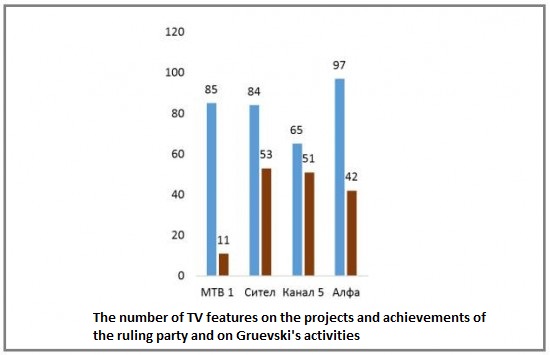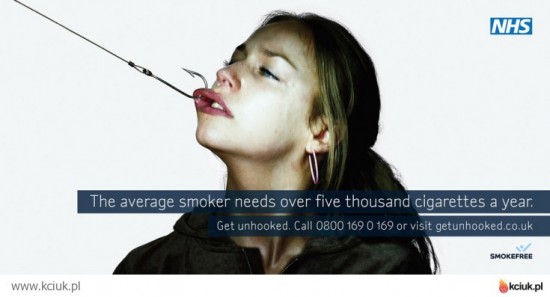Nine indications why the Law on State Advertisements is just a tool for financing the pro-government media
Published in Analyses
on 2 - 08 - 2016 Author: Vladimir Petreski
- Campaign of the government of Hong Kong for promotion of radiation/nuclear energy: “It’s all around us and part of life”. YouTube video
Numerous serious indications in this law – from its structure through to the resource allocation criteria – reveal that the draft Law on Informative and Advertisement Campaigns of the Public Institutions has the objective to award money to media close to the government so they can return the favor in a very efficient manner via affirmative reporting on government’s activities and affirmative reporting during elections, which is supposed to bring about its prolonged rule. Notwithstanding the fact that the government has absolutely no real need for advertisement and promo campaigns, their forced existence and the propaganda that follows appear to be the only option for the government to win elections.
Author: Vladimir Petreski
The draft Law on Informative and Advertising Campaigns of Public Institutions, which is this law’s full title, legitimizes the current media situation forged in recent years, when the pro-government media were given money generously to a fault, as would the Serbs say, in order to secure their extended survival and to continue the corruptive practice of awarding loads of money to these media, so they will serve the ruling party. As a matter of fact, we heard about this in the wiretapped conversations. According to the data published in the media and sourced from the government, in recent years, before the prohibition of the state advertisements, the government itself had been giving 7 to 9 million euro annually to the media, whereupon huge amounts of this money have ended in the pro-government media, with just several exceptions. In addition, this money is only from the government, whereas the money that the pro-government media had been receiving from the municipalities, state agencies and public enterprises are a plus.
This law allows the pro-government media, which were already functioning when government’s cash started flowing, to strengthen their suspiciously gained positions with the new amounts of money and because of this cash these media gained significant advantages in the small and poor Macedonian media market. On the other hand, the newly founded media, which are mostly started with the money of the Macedonian people (there are media whose revenues – as much as 90% – depend on this money, i.e. their business plan is “money from the government or death) will continue their unwarranted existence and will persist in perverting the media market via continuous use of spins and propaganda, and by doing so, deteriorating the status of the journalistic profession, continuing to pollute the public discourse, but they are also making continuous efforts to “steal” the audience from the proper media, who were and still are forced to exist without government money.
This is how the media image in this country looks like, viewed from a political point of view:
- When it comes to the biggest national terrestrial commercial TV stations, only one out of four that are broadcasting only in Macedonian is critically observing the government’s actions and policies. If we include the national public broadcasting service, Macedonian Radio Television (MRT), then we have four-to-one ratio (out of five national TV stations) in favor of the government;
- When it comes to the local and regional TV stations, the situation is also overwhelmingly on the side of the government. VMRO-DPMNE is in power in more than 50 municipalities, and most of them have contracts with local or regional TV stations for covering the municipal activities, for which these TV stations are receiving money. Besides, these TV stations receive money from the municipal public enterprises, and what’s more, in December 2013, people close to the government, bought six regional TV stations, strategically allocated throughout Macedonia, in just one day;
- When it comes to the newspapers, just one out of six national dailies is openly criticizing the government;
- When it comes to the news websites, the pro-government ones have 50% advantage over the critical ones. However, this advantage becomes even bigger when we look at the number of posts. The ratio of posts from the government and critical media is 2:1, more precisely 66% of the posts are published by the pro-government media, whereas only 34% of the posts belong to the critical media.* This is expected, due to the fact that the pro-government news websites include websites owned by big national TV stations, as well as such owned by the pro-government media and all of them have huge production. This is not the case with the critical websites, and most of them are part of small operations consisting of individual websites, without other media standing behind them;
- Meanwhile, in places where the government did not have advantage, it managed to create allegiant media which will protect its interests and cover every possible audience segment. Such is the case with the weeklies and the national radio stations, in which the “Fokus” weekly and the national radio station “Kanal 77”, which have existed on the market for more than two decades, received competitors in a snap, and due to the huge amounts of government money their newly created competitors have been receiving, “Fokus” and “Kanal 77” are now facing numerous problems.
With this law on state advertising, the government gave full steam to its efforts to petrify this situation in order to maintain and increase the advantage in the media sphere attained with people’s money, while deteriorating the market and neglecting the journalistic standards.
Here are nine strong indications which show that this law is deeply connected with the necesity to finance the pro-government media and the reasons for it. These indications also show that the law has nothing to do with any exigency for promotion of government policies:
- Misuse and spinning of recommendations given in Priebe’s Expert Report. It is true that Priebe’s recommendations say that any contingent media financing should be in compliance with precise and public criteria. However, this does not mean that money should be spent on government advertisements, neither that money could be spent government advertisements with the manner and criteria we see applied now, meaning that predominantly the media allegiant to the government benefit from this campaign.
This law mentions nowhere financing that would assist the development of the profession and augmentation of the professional standards. Also, this law does nothing in terms of enriching the Macedonian media content and in terms of creating new types of programs/media, which are non-existing in this country or are not present enough. The Macedonian language media market is right behind the media market in Estonian language on the list of the smallest language markets in Europe (the Basque language in Spain is used by very small population, so it cannot be referred to as “market” in the real sense of the word). Next, the media market in Macedonian language is meager and it needs support. But not the kind of support which does not have any advancing dimensions and not the kind of support which includes politicalization towards the needs and aims of one political party.
Besides, it is utterly symptomatic that the ruling power does not want, and still hasn’t begun, to reform and implement the plethora of recommendations covered in Priebe’s Report, which refer to many other more important things, such as separating the party from the state, dozens of recommendations for strengthening democracy, professionalization and depoliticalization of the institutions (e.g. MoI and the judiciary). Instead it concentrated on the state advertisements, simply because the Report mentions the state advertising as a problem. Such “digging” through the recommendations from Europe and sifting that which suits the government for its daily political needs, simply means lack of willingness to act in an all-embracing manner regarding the recommendations, but also shows ill design to evade the European recommendations by finding and implementing items which are of party’s best interest only.
- Why is this law passed right now? Because of the approaching general elections! The law is proposed in a very symptomatic moment. The possibility of new general elections in November was mentioned several times in the public, and the government is rushing to support its media financially, so they can serve it better and more efficiently during the election campaign. Similar as in the case of the Eurobond. Just as it provides corruptive resources to the government prior the general elections, this law provides corrupted media to the government prior the elections. Why else the media regulator, the Agency for Audio and Audiovisual Media Services (AAAMS), would have been given irrationally short deadlines – only one month after the adoption of the law – to hurriedly determine the ratings, the reach and visits of all types of media? Well, the aim is to prepare as soon as possible the criteria for giving money, imperatively prior the possible general elections in November.
Also, these days we hear about financial problems and announcements for layoffs in a number of pro-government TV stations, both national and local, but also for layoffs in the pro-government news websites. The government simply could not let that happen, because it does not want to take part in the general elections without all its media at disposal. So, the pre-ballot corruption remains safe and sound because it seems that this government can win elections only by that means. Specifically, it is the exact type of pre-ballot corruption that the opposition had the most remarks for during the Przhino Agreement negotiations, but the government does not want to yield up.
- What is the need for such a law? There isn’t any. We did not hear anything about the need for passing this law. Why is it prepared? No analysis has been made about it, nothing. The aim was said to be promotion of the public policies. Fine. But when this government has had any kind of problems in presenting its policies to the public? Never. We have never heard that this government has had any kind of problems in this field and had obstacles in informing the citizens about its work and policies? Never. We didn’t hear that the government had troubles in this regard. The media allegiant to the government avidly follow every step that the government officials make. They even report when a 400 meter long access road is built in some local Free trade zone. Such trivial activities appear as news in the websites on national level. Previously, we saw the government’s high dominance on the media scene and its huge influence, however, from the wiretapped conversations we heard that the pro-government national TV stations have up to 12 orders per day for reporting about events and news from the government. This was additionally and independently determined as correct by the Institute for Communication Studies in their research on the media reporting.
As we can see from the graph, in just four weeks in March and April, the three largest commercial terrestrial TV stations, as well as the public broadcasting service, have broadcasted 331 news about the work, the activities and the projects of the government and 157 TV features about the activities of the leader Nikola Gruevski. So now, what kind of additional promotion of the government policies is required in such situation? How many more minutes or hours a day in the media should the government receive in order to be satisfied? When is it enough?
- What about the billboards and the social networks? The law projects nothing regarding advertising on billboards, buses, social networks and the video distribution Internet services (such as YouTube). On the contrary, campaign material is just “audio or audiovisual content for radio and TV stations, material for the printed media, as well as web banners or other digital content for the Internet media” and nothing else.
If you ask any marketing expert if she or he is going to give up social networks nowadays, she or he would think that you are nuts. However, an efficient promotion or advertising of public policies is not the main goal in this case. Therefore, the advertising campaigns do not project any promo tools outside the media. The government does not find them interesting, albeit the contemporary advertising cannot function without them.
- A dilemma for the critical media whether to make Faustian bargain. This law puts the critical media in front of an impossible choice, precisely, those media which disagree with government’s policies, i.e. the policies that need to be advertised. They are in front of the choice to either accept the money and then go on promoting something foreign, something they disagree with, and by doing so they enter a series of unpleasant situations in front of their readers/viewers; or to reject the money and therefore put themselves into danger to be commercially run over by the pro-government media, which will be overflown with government cash. As some media which haven’t been receiving government advertisements have experienced. Of course, in a democratic society no medium should be put in front of such Faustian bargain. What’s more, according to this law, the government is allowed to give money to the media in the amount of up to 25% of their revenues, which means that if you are a pro-government medium, every fourth denar will be a gift from the government.
- The TV stations are the most important for the government, thus they receive the most money. It is completely inconsistent to say that 75% of the money from all government campaigns that exceed 100.000 euro will be automatically given to the TV stations. Regardless the campaign and the subject. And if you ask an advertising expert, she or he would immediately say that this makes no sense at all. The public policies simply contain too many issues which cannot be explained, i.e. cannot be covered in a 30-second TV advert. There are also such issues that require special publications and special websites (which are not mentioned as a campaign part in this law). Every campaign has its separate marketing mix. And that marketing mix greatly depends on what should be promoted. When a marketing mix is being created, nobody starts from the required percentage for one media without previously having the target groups in mind. But, this is just one more indicator that this is not a case of advertising or promo campaigns, yet just a case of giving money to the pro-government media.
- For everything below 100.00 euro, the media corruption remains the same. This law is related to promo campaigns valued more than 100.000 euro. Everything below that amount remains the same, i.e. is regulated by the Law on Public Procurements. This is way too high point. And this law, actually, will regulate smaller number of campaigns, via which the TV stations will be given money, which charge more for advertising, whereas larger part of the campaigns, those which do not exceed 100.000 euro, will be realised the same as now, i.e. the government can freely give money to whoever it wants. 15-20 smaller campaigns a year, up to 100.000 euro each, are enough to “refresh” the pro-government printed and internet media for a year (plus their part of 25% from the pie of the big campaigns worth more than 100.000 euro, which will also end up in the pro-government newspapers and websites). Besides, public procurements below 5.000 euro do not require any procedure, and these minuscule “campaigns” have been used by the government God knows how many times during the year in order to “patch up” holes in the financing of the pro-government media before the big money arrive. If the intent was a true regulation of the advertising and promo campaigns, then the government would have provisioned two types of campaigns – above and below 100.000 euro, and it would have regulated the smaller ones as well. But when it is a matter of financing the media close to it, the government wants to be comfortable to give money to whoever it wants.
- New battle with the “traitors”. The law projects sums received as donations and sponsorships by the media to be deducted when they go for the money from the government advertisements. Practically, it is very complicated to perform such deduction if various campaigns are carried out by various agencies, but notwithstanding – this provision totally unfair in the core. Clearly, this provision is related to those media who have been awarded grants from foreign donors and the goal is to put them in an unfavorable position to the benefit of pro-government media, who on the other hand are not interested in this money, because the values that should be promoted through those campaigns are foreign and unacceptable for them. Two things should be known when it comes to grants awarded by foreign donors:
а. The sums of 20 million euro or 10-15 million euro per year for grants awarded by foreign donors mentioned in the public by the government’s propagandists are absolutely incorrect. This has nothing to do with the reality, because the real sums per annum are 20-40 times smaller. The Media Fact Checking Service has authored special analysis on this subject and there is simply no need to argue the same things again, regardless of the untruths stated in the public;
б. They money you receive from foreign donor for a project and the money you receive after you have submitted invoice to the government for published governmental advertisements are not the same. Not even close. This can be explained with the example of the money from the European IPA funds and the money from the Eurobond that the government has on disposal. Albeit the government had 615 million euro from IPA1, it spent only 150 million euro. And although this money are irreversible, the government uses it too little, and what’s more, it rushes into debt with the Eurobonds of up to 650 million euro with 5% commission. The difference is that you are obliged with a written contract to spend the money from the IPA funds and from grants on the strictly defined target and on nothing else. On the other hand, you can spend the money from state advertisements the way you like. This means that in order for the government to have the gall to even up the money the media have received as grants with the money from the government’s advertisements and to deduct the money from grants, it first needs to use the IPA1 resources and only afterwards to run a debt with the Eurobonds. However, using the IPA resources is difficult and complex. Certain conditions need to be met, primary investments are a must, etc. The situation with the foreign grants for media is the same. You can receive that money and again you might not have enough for journalists’ salaries, because the money from the grant have different purpose.
If the government did not want to punish the critical media in such despicable manner, and by doing so, to give a head start to the pro-government media, it could have put a provision in the draft-law with which the donated money would have been deducted by 50%, for example. So, if you have been awarded a 20.000 euro grant, 10.000 euro from the money for government advertisements will be deducted. But no. “Traitors” must be punished. What’s more, this measure sends very bad message to the foreign donors. They are told that their money are not welcomed and they are pushed away from the media market. If the media have to choose between grant and money from government activities, they could easily pick the latter, because it is a matter of much bigger sum of money that can to be divided and spent at liking.
- Government’s bonuses. This law comes with plenty of bonuses for the government, besides the fact that it will allow it to award money to the media close to it. Finally, the dream to establish control over the websites will come true. Every website must be registered at the AAAMS in order to receive advertisements, and the government will know everything about every registered website. Plus, the visits will be measured by only one tool (Google Analytics), and not by several tools, because all of these tools use various methodologies. Besides, Google Analytics measures only the website’s visit, not the visits of that brand on the social media, on the video distribution services, e-mails etc. For instance, 24 Vesti’s website is not among the 5 most visited websites in Macedonia, but its Facebook fan page has more than 240.000 likes, biggest number in the country. So, this way of measuring visits is old-fashioned and it takes us 15 years back, before the rise of the social media and the video distribution services. Plus, the government is given promotion on many popular social media for free. Also, this law does not limit the AAAMS regarding the websites’ data it will receive via Google Analytics. The websites that want to receive government advertisements must allow open access to the AAAMS to Google Analytics regarding their data at any time. This tool offers complete and all-embracing analytics, for instance, what are the most popular article types, which categories, the time of the day when a website is most visited and the AAAMS can freely trade, without sanctions, or award these important and strategic data for one or more “enemy” websites to their competitors from the desired political background.
The other bonus for the government that comes out of this law is the price of the advertisements which will be determined by the government itself via the prices from the previous year or via determining the Cost-per-Rating-Point parameter for TV stations. There are no criteria in the law regarding the latter measuring, and the government can decree the price it wants. By doing so, the government becomes supreme price arbiter of the media space and the media will hardly be able to form their own prices for the clients, because the government’s prices will be published on AAAMS’ website. This is deep and all-embracing interfering in the media business, and by doing so, the government gains significant power and can even influence media’s fate. When somebody leads the price policy in one industry, he has immense power over that industry.
All of this clearly shows that the government, besides the fact it is pushing a law which is totally unsollicited, a law that it wants to push it through as fast as possible, with the goal to prevent the current dismissals in the media close to it and to financially prepare them for the possible general elections in November, it deeply invades the commercial area, and by doing so, it secures influence way over the allowed in one market economy. Having this in mind, it is obvious that the advertising and promo campaigns are somewhere on the distant second place and the benefit can be just additional brainwashing of the public to accept the government’s policies via propaganda and spins. The first and basic purpose of this law is corruption of media and making them support the government even further.
Unfortunately, this law will additionally fortify the poor rating Macedonia has received from Reporters Without Borders, Freedom House etc. regarding media freedoms. It is correct that the government doesn’t care about the data published by these distinguished and globally accepted institutions (they are “sorosoids”), which, by the way, have been in this field three – four decades, but this doesn’t mean that the world is not watching what’s going on in this country.



